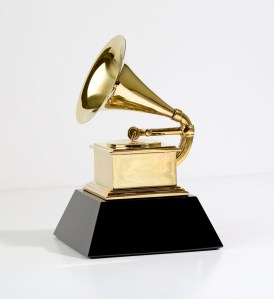 Video games tend to be the odd medium out in our present-day world. Debates still regularly flare up about the merits of “games as art.” Regular gamers are happy to simply play and be happy, but vast swaths of the mainstream audience are still trying to figure out exactly what to make of this relatively young form of entertainment. This week marks another big step forward as the National Academy of Recording Arts & Sciences has officially added “video games” as a descriptor to four Grammy Awards categories.
Video games tend to be the odd medium out in our present-day world. Debates still regularly flare up about the merits of “games as art.” Regular gamers are happy to simply play and be happy, but vast swaths of the mainstream audience are still trying to figure out exactly what to make of this relatively young form of entertainment. This week marks another big step forward as the National Academy of Recording Arts & Sciences has officially added “video games” as a descriptor to four Grammy Awards categories.
“I think this could be viewed as a first step in the direction of video games getting their own category,” Recording Academy executive Bill Freimuth told IndustryGamers. “Many people from the game community have been asking us to create a special category for games over the years, but the main reason we haven’t is because we have received very few entries from game publishers.”
The four newly game-enhanced categories are:
Music for Visual Media (Motion, Television, Video Game Music, or Other Visual Media)
Best Compilation Soundtrack for Visual Media (Motion, Television, Video Game Music, or Other Visual Media)
Best Score Soundtrack for Visual Media (Motion, Television, Video Game Music, or Other Visual Media)
Best Song Written for Visual Media (Motion, Television, Video Game Music, or Other Visual Media)
The change is largely a symbolic one, as games were previously considered to fall into the realm of “other visual media.” Symbolic or not though, it is highly notable that the interactive arts are now singled out alongside television and film. Electronic Arts’ Steve Schnur (Worldwide Executive, Music) tells IndustryGamers that he believes the medium has never been given a fair shake by voters as a result of being lumped into an “other” category.
“This acknowledges that film, TV and games can stand side by side and be independently recognized,” he said. “Hopefully, this will create an even playing field when people vote next year. I expect there to be a tidal wave of submissions from the game industry.”
As with all new art forms, this is another stage in the long-term process of it being accepted by the larger entertainment-consuming community. As more Hollywood names have signed on to compose for AAA releases, people like Hans Zimmer (Inception), Bear McCreary (Battlestar Galactica), Michael Giacchino (Lost) and Tyler Bates (Sucker Punch), a change such as this has seemed increasingly inevitable. Good to see it finally happen.
Editors' Recommendations
- 2024 Oscar winners: Oppenheimer wins 7 awards, including Best Picture
- Oscars 2024: Who is performing at the Academy Awards?
- Watch the 2024 Grammys: date, time, nominees, performers, live stream
- Oscar predictions 2023: who will take home the major awards?
- PUBG Mobile wins an MTV Video Music Award for its in-game Blackpink concert


